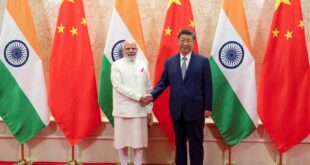Pressured by farmers and others affected by cheaper imports, the Smoot-Hawley Act was passed in 1930. It imposed tariffs on imports and caused a reciprocal effect in affected countries which imposed their own tariffs. So what happened?
If we think for a second. . . tariffs will increase the price of goods and consumers will consequently buy less. At a time when the U.S. was already into a recession, it exacerbated the effects. Consumers already with little money would buy even less.
With everyone imposing their own tariffs in a trade war, global trade collapsed by 65 percent. Exports from the U.S. fell from $7 billion in 1929 (about $140 billion today) to $2.5 billion in 1932.
Let us hope all this is not a harbinger of the end game with Donald J. Trump’s policies. He is going around claiming trade wars are easy to win. Do not be surprised if people begin to assume the ‘J’ for his middle name stands for something that goes Hee! Haw!
But China is not the only one in Trump’s sights. He has imposed tariffs affecting 185 countries: 34 percent on Chinese imports in addition to the 20 percent tariff already in place taking the total to 54 percent; 26 percent on India; 20 percent on European Union imports — all effective from April 9th.
China has responded with an extra 34 percent duty on U.S. goods in addition to the 10 to 15 percent levied in March on $21 billion of agricultural imports. Is this what a trade war looks like?
The stock market seems to think so. The Dow Jones Industrial Average (DJIA), a primary indicator, is down 6 percent in the few days since the tariff announcement. Just a short while ago, the outlook was rosy with the expectation of a significant positive increase — even perhaps a doubling of some stocks.
If we remember that a normal average increase in stock prices, going back years to when records started being kept, is about 9 percent annually, it becomes clear that 6 percent in two days is a hefty drop. Meanwhile, Trump is quite blase’ about the market drop leaving the burden of recovery on Fed Chairman Powell — “This would be a PERFECT time for Powell to cut rates” (his emphasis), he posted on social media. Again, the gaps in his thinking . . . he seems to have forgotten the stock market is one of the more reliable predictors of future economic performance and a big drop signals a recession, at least it has historically.
So where does all this place us, the vast majority, much, much poorer than Trump or Musk and worrying about 401K accounts and pension funds? Just batten down the hatches and wait for political leaders with a modicum of sympathy for the average Joe — the storm will last four years!
 Geostrategic Media Political Commentary, Analysis, Security, Defense
Geostrategic Media Political Commentary, Analysis, Security, Defense





